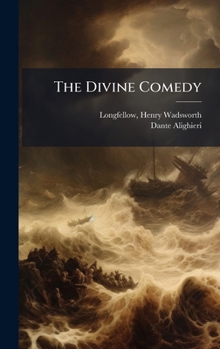The Divine Comedy
"The Divine Comedy" is an epic poem by Dante Alighieri, translated by Henry Wadsworth Longfellow. It is widely regarded as the most important work of Italian literature and one of the greatest works of world literature. The poem tells of Dante's journey through Hell (Inferno), Purgatory (Purgatorio), and Paradise (Paradiso), guided first by the Roman poet Virgil and then by Beatrice, Dante's idealized woman.
Written in the early 14th century, the poem is a profound allegory of the human soul's journey toward God. Longfellow's translation brings this classic to a new audience, offering an accessible entry point to Dante's complex and beautiful vision. Explore the depths of human sin and the heights of divine grace in this timeless masterpiece.
This work has been selected by scholars as being culturally important, and is part of the knowledge base of civilization as we know it. This work was reproduced from the original artifact, and remains as true to the original work as possible. Therefore, you will see the original copyright references, library stamps (as most of these works have been housed in our most important libraries around the world), and other notations in the work.
This work is in the public domain in the United States of America, and possibly other nations. Within the United States, you may freely copy and distribute this work, as no entity (individual or corporate) has a copyright on the body of the work.
As a reproduction of a historical artifact, this work may contain missing or blurred pages, poor pictures, errant marks, etc. Scholars believe, and we concur, that this work is important enough to be preserved, reproduced, and made generally available to the public. We appreciate your support of the preservation process, and thank you for being an important part of keeping this knowledge alive and relevant.





